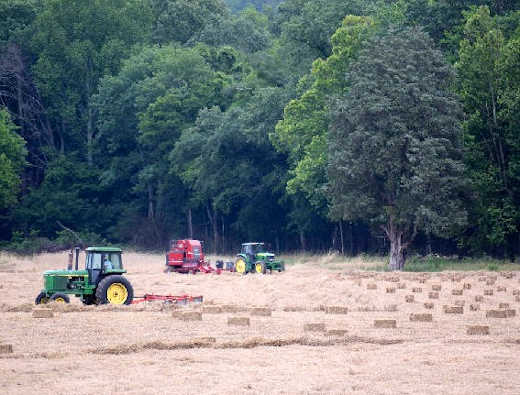By Pam Knox
Flash droughts like the ones that have afflicted Georgia and the Southeast in 2016 and 2019 come on so rapidly that producers have a hard time reacting to them. Predicting them can be even harder. But flash droughts, which are typically short-term water deficits caused by very little rainfall and high temperatures and affect primarily agriculture, are difficult to predict and are not well captured by the Drought Monitor, which has to balance long- and short-term drought impacts in a single map. The State of Georgia does not give drought response level information for flash droughts, concentrating instead on longer-term hydrological droughts which affect water supplies.
WABE posted an interesting story recently which described some new initiatives to study flash droughts and to improve prediction and response to agricultural impacts. You can read the article at
https://www.wabe.org/with-flash-drought-more-research-could-lead-to-better-predictions/.

A trio tractors rake, bale and collect straw at Scoggins Farm, a family farm on West Armuchee Road in South Walker County, Ga., on June 1, 2017. Plentiful rain so far this spring has fostered a far better growing season so far, local agriculture officials say. Photo by Ben Benton /Times Free Press.
Source : uga.edu